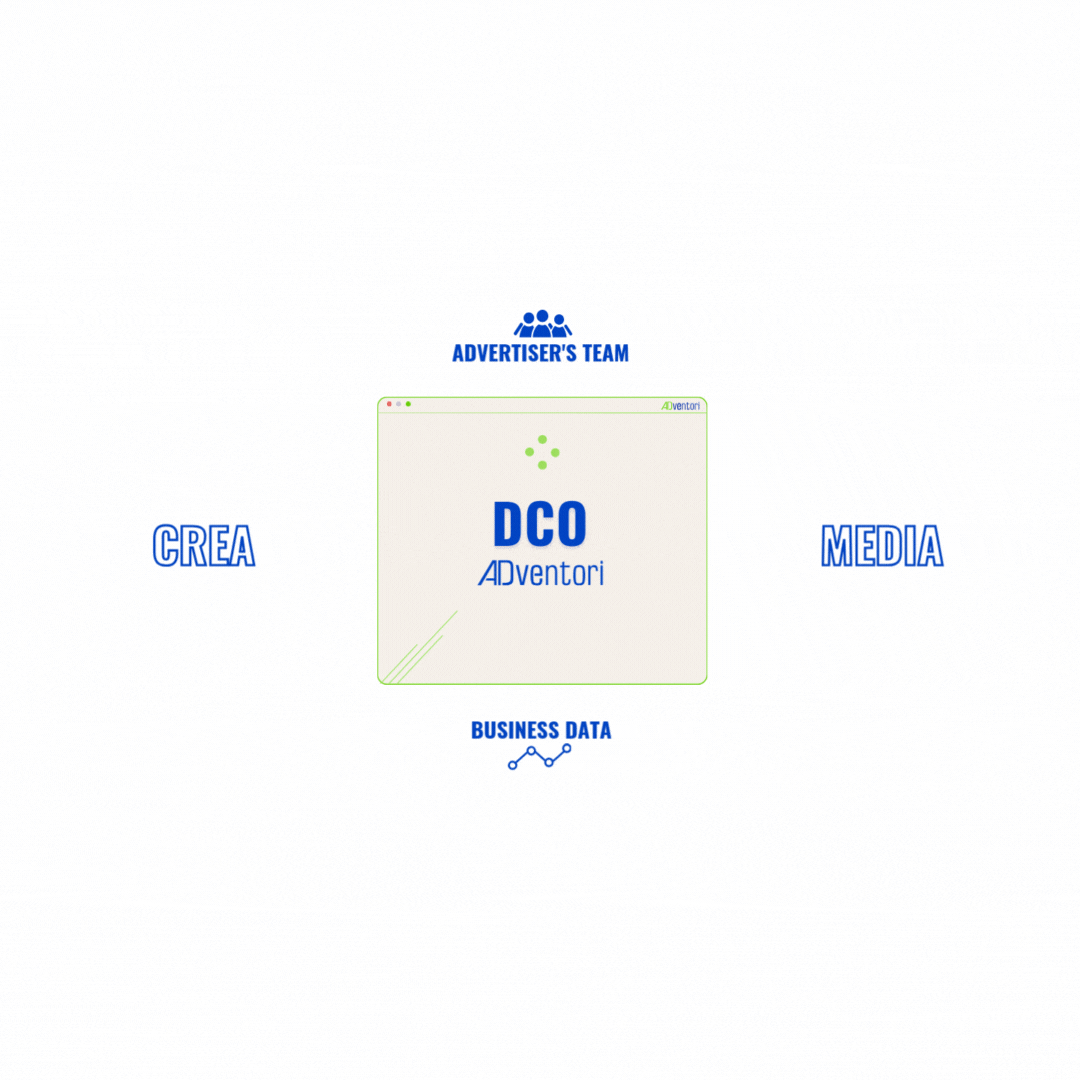This site uses cookies so that we can provide you with the best possible user experience. Cookie information is stored in your browser and performs functions such as recognizing you when you return to our website and helping our team understand which sections of the site you find most interesting and useful.
In today’s ever-evolving digital landscape, advertisers face a key challenge: capturing consumers' attention at the right moment, in the right context, and with the right message.
This is where creative automation, embodied by solutions like Dynamic Creative Optimization (DCO), proves to be an essential tool. This technology combines personalization with efficiency, optimizing both costs and timelines (for production and deployment).
What is DCO ?
DCO is a technology that automatically personalizes advertising content in real-time, based on signals related to the user’s profile, browsing context, or other available data.
Whether it’s direct or programmatic banners, social ads, videos, or even digital out-of-home (DOOH) displays, this technology adapts every element to maximize the relevance of the message.
The factors considered include, among others, geolocation, weather, consumer preferences, or even in-store stock.
In short, DCO ensures that every ad message is perfectly tailored to the time, context, and location where it is seen. This precision not only improves performance but also responds to consumers’ growing demand for useful and personalized ads.

A Versatile and Powerful Solution
Developed by adtech companies like ADventori, DCO offers practical solutions for complex challenges. It goes beyond personalization by:
- Testing multiple messages and formats to identify top performers.
- Reducing creative costs through automated updates and scalable variations.
- Increasing conversion rates and freeing up time for marketing and creative teams.
As Pierre-Antoine Durgeat, founder of ADventori, explains, this technology is particularly suited for advertisers with advanced contextualization and personalization needs:
“If a brand like Lancôme can do without it, this is not the case for multi-brand retail chains like Sephora, or sectors like automotive and travel, where large-scale personalization is key to advertising performance.”
Case study : Air France
Since 2018, Air France has leveraged DCO to streamline and personalize its display campaigns. Every week, the airline runs global ads tailored to local markets with specifics like language, currency, promotions, destinations, and airports.
Partnering with ADventori, Air France achieved:
- Over 70 independent media campaigns annually across 100 countries, with more than 3 billion DCO impressions.
- Campaign launch timelines cut from 1 month to just 48 hours.
- Creative cost savings through modular templates offering hundreds of thousands of combinations.
- Greater autonomy for creative and media-buying teams.
Marie-Christine Voltaire, Digital Project Manager at Air France, says:
“Our campaigns now go live instantly, which is a huge advantage. Moreover, our tracking tools allow us to fix mistakes in real time while optimizing our ad spend.”

Trust and Data: The Core of Creative Automation
Creative automation can only function with high-quality, well-structured data and clear consent.
As Pierre-Antoine Durgeat reminds us, “Nothing is personalized without consent, and advertisers’ data is encrypted and isolated to ensure privacy.”
This strict framework reassures both advertisers and consumers, offering impressive granularity to maximize campaign impact.
Towards Smarter Advertising
In conclusion, creative automation, driven by solutions like DCO, is a true revolution for advertising campaigns. By combining personalization, performance, and flexibility, this technology is reshaping industry standards.
While not suitable for every advertiser, it is an essential tool for those operating at scale or in competitive sectors.
With examples like Air France, it’s clear that this approach goes beyond optimization: it transforms the way brands engage with their audiences. In a world where relevance is key, creative automation is not just a solution but a strategy for the future.

